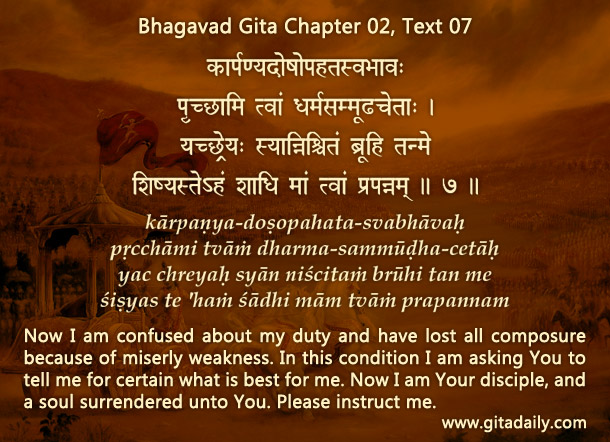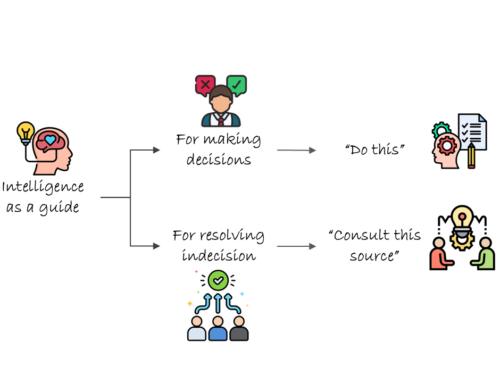The Bhagavad-gita begins with Arjuna deciding to not fight in the upcoming war (01.46). Yet given the grave consequences of either decision – to fight or not – he soon had second thoughts and ended up confused (02.06).
Like Arjuna, we are all prone to commit mistakes in assessing situations. After all, we are limited creatures who have limited information about things and have limited intelligence to analyze whatever information we have. So we may arrive at mistaken positions, but that is not as problematic as making those positions a prestige issue. Because then we become goaded by the egoistic dogma, “It’s my opinion and I must be right,” and can’t look at the situation objectively. We either subconsciously neglect or consciously relegate things that problematize our position. When we are ego-driven, even if we somehow prove that our position is right, we end up winning the battle, but losing the war – our ego grows, but our wisdom doesn’t.
When we are ego-driven, even if we somehow prove that our position is right, we end up winning the battle, but losing the war – our ego grows, but our wisdom doesn’t.
Instead, we can see re-evaluating our positions as growth opportunities. By focusing on determining what is right, we grow in wisdom when we are wrong – and when we are right. If we are wrong, we learn what is right and why. And if we are right, we get a clearer and non-egoistic understanding of why we are right.
For seeking the truth non-egoistically, we can get inspiration from Arjuna’s example. He admitted to being confused and sought guidance from Krishna (02.07). That he submitted thus in public view between the two armies indicates that he was concerned not about looking intelligent, but about becoming intelligent. By keeping his priorities straight, he got enlightened and empowered with Gita wisdom (18.73).
By similarly putting enlightenment above the ego, we too can become empowered with wisdom.

Explanation of article:


Leave A Comment